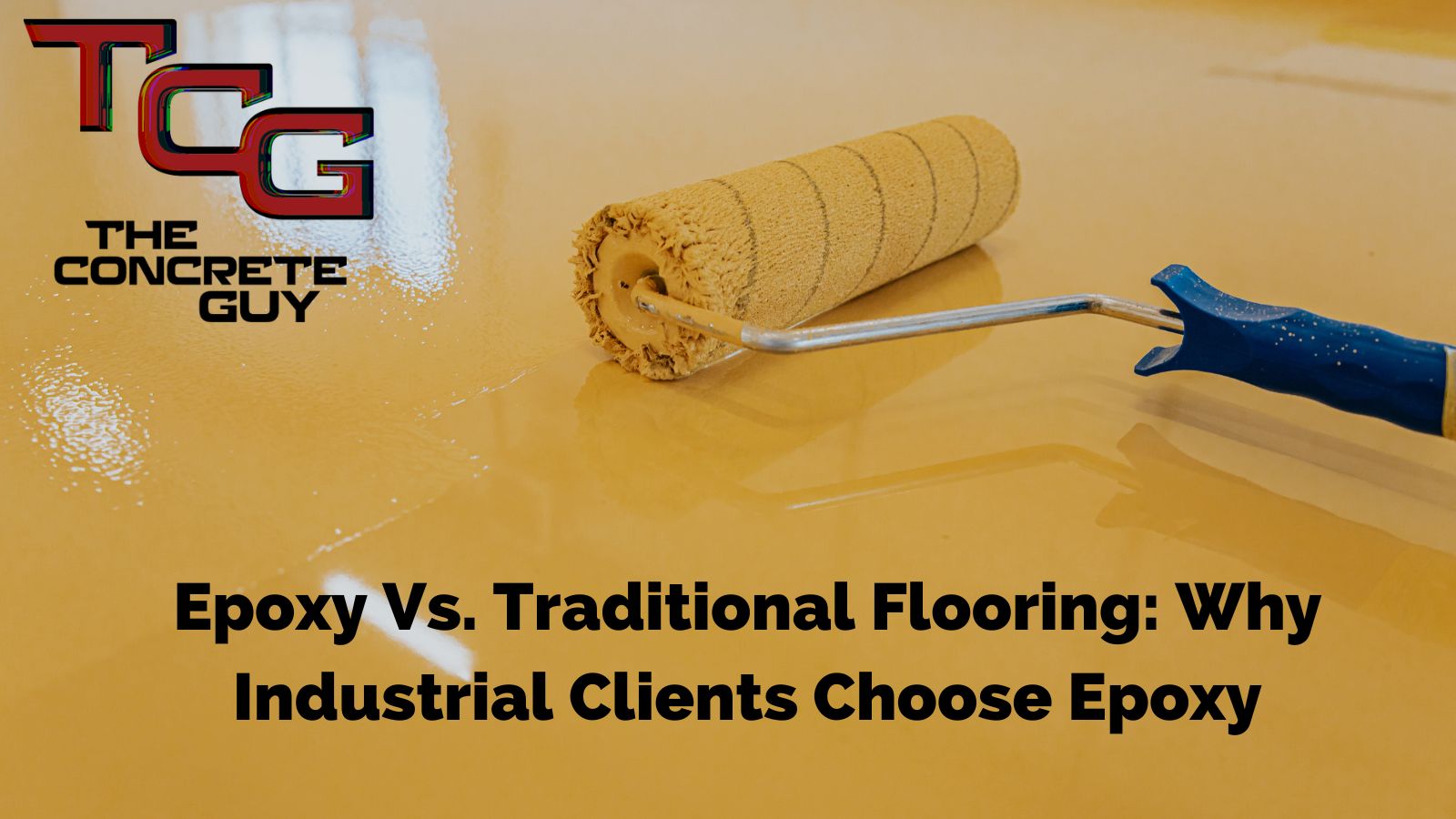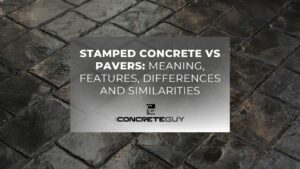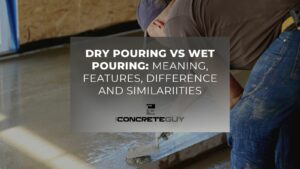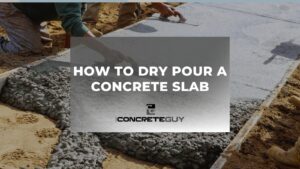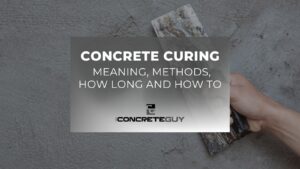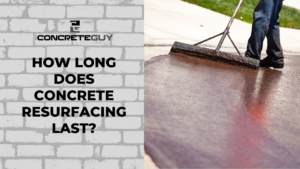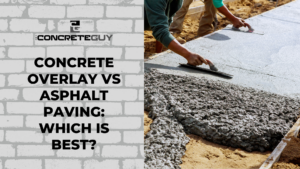When choosing the right flooring for your space, you’ll have to consider several options, such as durability, strength, and maintenance. But some people get stuck deciding between epoxy vs traditional floorings.
The better option between epoxy and traditional flooring is what suits your specific needs. If it’s the durability you want, epoxy floors will work for you. If you want a natural-looking aesthetic, choose a traditional floor.
Keep in mind that every floor type has its unique characteristics, but most industrial clients prefer epoxy flooring, and you’ll soon find out why as you keep reading.
Epoxy Vs Traditional Flooring: Which Is Better?
While epoxy flooring is a modern, durable option known for its resilience and low maintenance, traditional flooring offers a classic aesthetic. It can enhance the warmth and coziness of a space. There is no definitive “better” option between epoxy and traditional flooring; it comes down to your priorities.
If you’re decorating a new space and you’re trying to decide on the best flooring option, you will need all the information you can get. This is because your floor not only has a significant impact on the outlook of your space, but you wouldn’t want to change your flooring too often. Here’s how epoxy and traditional flooring options differ.
1. Durability
Epoxy flooring is exceptionally durable and can withstand heavy traffic, making it ideal for commercial and industrial settings.
Traditional flooring materials can be durable, but their durability varies based on the material type and how well they are maintained. For instance, ceramic and porcelain tiles are highly durable and resistant to wear and moisture.
They are commonly used in high-traffic areas and are known for their longevity. Materials like hardwood and carpet are more susceptible to damage from moisture, stains, and heavy traffic.
2. Maintenance
It is easy to clean and maintain epoxy flooring because of its smooth, non-porous surface, which resists stains and spills. It can be wiped up effortlessly. Some traditional floors, like tile, vinyl, and laminate, are generally low maintenance, while others, like hardwood and natural stone, may require more attention to maintain their appearance and longevity.
3. Aesthetic Variety
Traditional flooring offers a wide range of materials, styles, and colors to suit different design preferences, from the warmth of hardwood to the versatility of tile. They can add a natural, classic look to a space, enhancing its appeal. Epoxy flooring also comes in a variety of colors and can be customized with decorative elements like flakes, metallic pigments, or patterns.
4. Chemical Resistance
Epoxy is highly resistant to chemicals, making it suitable for areas where spills of oils, solvents, or other chemicals are common. In contrast, traditional flooring materials are not as resistant to chemicals and may stain or deteriorate when exposed to certain substances.
5. Cost
Epoxy flooring may have a higher upfront cost compared to some traditional flooring options like tiling. The complexity of the installation process, including surface preparation and the application of multiple epoxy layers, contributes to labor expenses.
Why Industrial Clients Choose Epoxy
Epoxy flooring has become the flooring of choice for a multitude of industrial clients for good reasons, such as durability. Industrial settings have unique demands, and epoxy addresses these requirements exceptionally well.
Here are 9 key reasons why industrial clients opt for epoxy flooring:
1. Durability And Longevity
Epoxy flooring, when properly installed, can outlast most flooring options. They are resistant to wear and tear caused by heavy machinery, forklifts, foot traffic, and other physical stresses commonly encountered in industrial environments.
The epoxy coating forms a tough and resilient surface that can withstand the constant pounding and abrasion that would quickly deteriorate other flooring materials. They don’t corrode, degrade, or stain when exposed to these substances, ensuring the longevity of the flooring.
Many epoxy floors can last 10-20 years or more, depending on the type of epoxy used, the quality of installation, and the level of wear and tear they endure. This longevity translates to cost savings over the long term, as it reduces the frequency of floor replacements.
2. Aesthetics
While functionality is crucial, the appearance of the workspace matters too. When you apply epoxy to your concrete floor, it instantly gives your facility a new, polished look.
Epoxy floors are available in various colors and finishes, which can help improve visibility and aesthetics in industrial facilities. Bright, reflective surfaces can enhance lighting conditions and create a more pleasant work environment.
Additionally, work areas can be customized to your liking, and you can ask that texture be added for an extra layer of safety and protection while also enhancing the overall design of your concrete flooring. In industrial settings, it can be helpful to incorporate varying colors of flooring to separate safety areas, traffic lanes, and work zones.
3. Slip-resistant
Epoxy flooring can be customized with anti-slip additives, creating a safer working environment. This is particularly important in industries where employees may be at risk of slipping and falling due to wet or oily conditions. This unrivaled resistance is one of the primary advantages of epoxy flooring for commercial and industrial applications.
The level of slip resistance in an epoxy floor can be influenced by the texture applied to the surface during installation. The installer can control the degree of texture, with options ranging from fine to coarse, to achieve the desired level of slip resistance.
4. Resistance To Moisture
Epoxy flooring is inherently moisture-resistant, making it suitable for areas where moisture or humidity may be a concern. It doesn’t absorb water, which can lead to warping or damage in other flooring materials like wood.
5. Customizable Thickness
Epoxy flooring can be applied at varying thicknesses, depending on the specific requirements of the space. Thicker epoxy coatings offer additional strength and durability, making them suitable for even the harshest industrial conditions.
6. Minimal Maintenance
Epoxy floors create a smooth and non-porous surface that is inherently resistant to the absorption of dirt, dust, and contaminants. Unlike porous materials like grout or unsealed concrete, epoxy doesn’t trap debris, making it easy to keep clean.
Epoxy floors can be installed as a seamless surface, which means there are no grout lines or seams where dirt and grime can accumulate. This seamless quality not only enhances the appearance of the floor but also contributes to its hygienic nature, making it suitable for environments where cleanliness is paramount, such as commercial kitchens and healthcare facilities.
Routine maintenance typically involves sweeping or vacuuming to remove loose dirt and debris, followed by mopping with a mild detergent and water.
7. Easy To Install
In industrial settings, minimizing downtime during installation is essential. Epoxy flooring can be applied relatively quickly compared to some alternative flooring options. This means less disruption to operations and a faster return to normal business activities.
8. Chemical Resistance
Many industrial processes involve the use of chemicals that can be damaging to conventional flooring materials. Epoxy’s resistance to chemicals makes it an ideal choice for industries such as manufacturing, food processing, and chemical production. It can endure spills and exposure to corrosive substances without deteriorating.
9. Eco-Friendly
Although it is a chemical compound, epoxy is an eco-friendly option because it requires few materials and does not need to be replaced continuously.
Unlike other flooring systems that require saws and other tools to cut tiles or wood, epoxy flooring only requires a few appliances to roll out. Additionally, since epoxy floor coating lasts for many years, large amounts of material are not used frequently, which is beneficial for the environment.
If you’re looking for an eco-friendly, cost-effective, and long-lasting flooring solution for your garage, epoxy flooring is the way to go.
Epoxy Flooring By The Concrete Guy
When we say epoxy flooring is durable, it’s deeply rooted in the chemistry of its composition. They are durable, low-maintenance, and eco-friendly. But you can only get the full benefits of this floor type when they’re properly installed by experts like The Concrete Guy”.
For those contemplating a surface upgrade, whether in residential or industrial settings, the message is crystal clear: Epoxy flooring is far from a temporary solution.
It is a durable, cost-efficient, and visually pleasing option that endures the test of time, promising both practicality and aesthetic enhancement.

